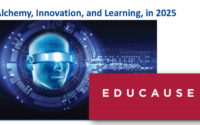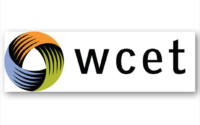
Students and mobile devices
Many educators advocate, promote and encourage the dreams of agency, control, ownership and choice amongst students whilst educational institutions take the responsibility for provision, equity, access, participation and standards. The institutions traditionally procure, provide and control the technology for learning but now students are acquiring their own personal technologies for learning and institutions are challenged […]
















